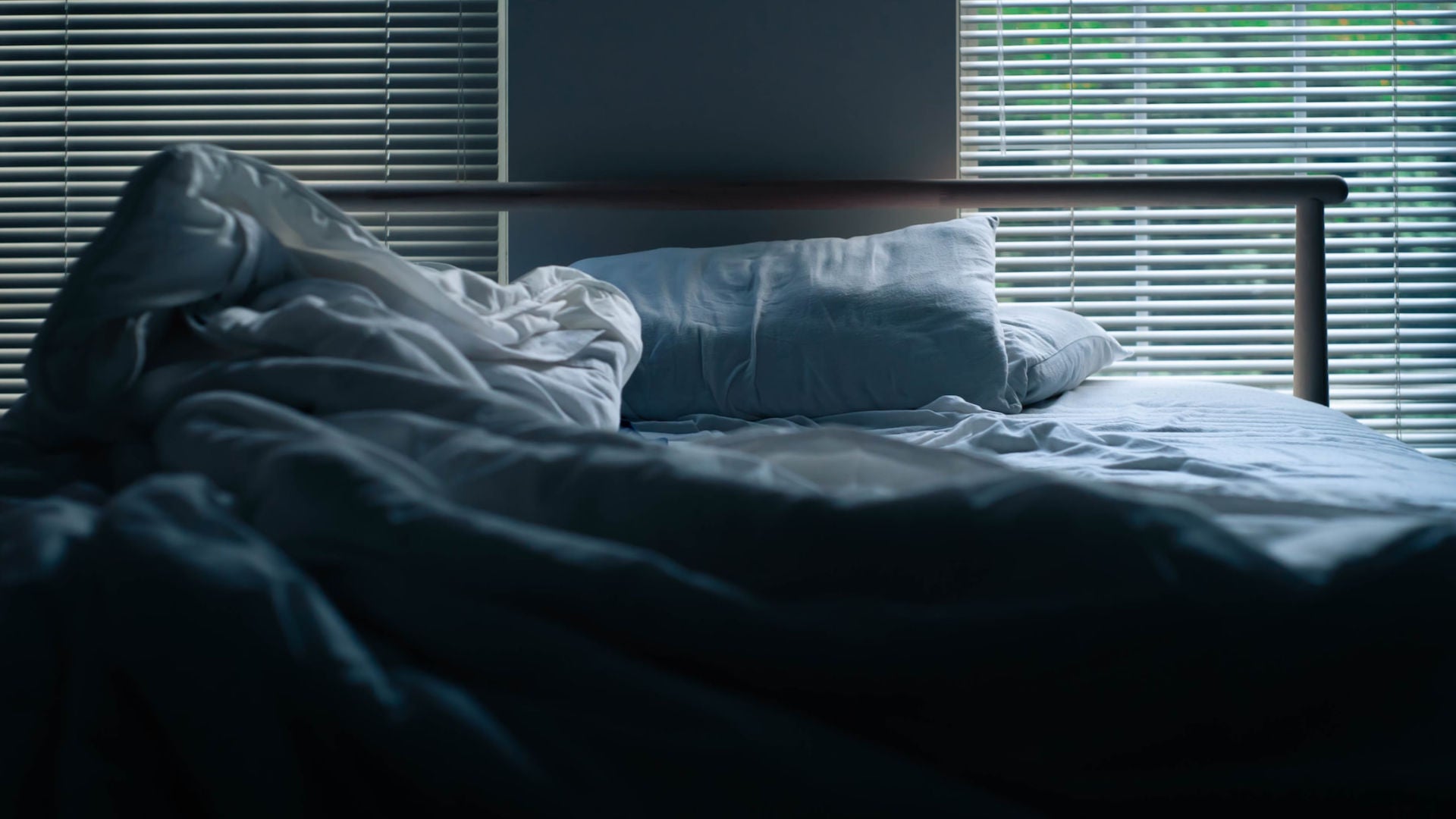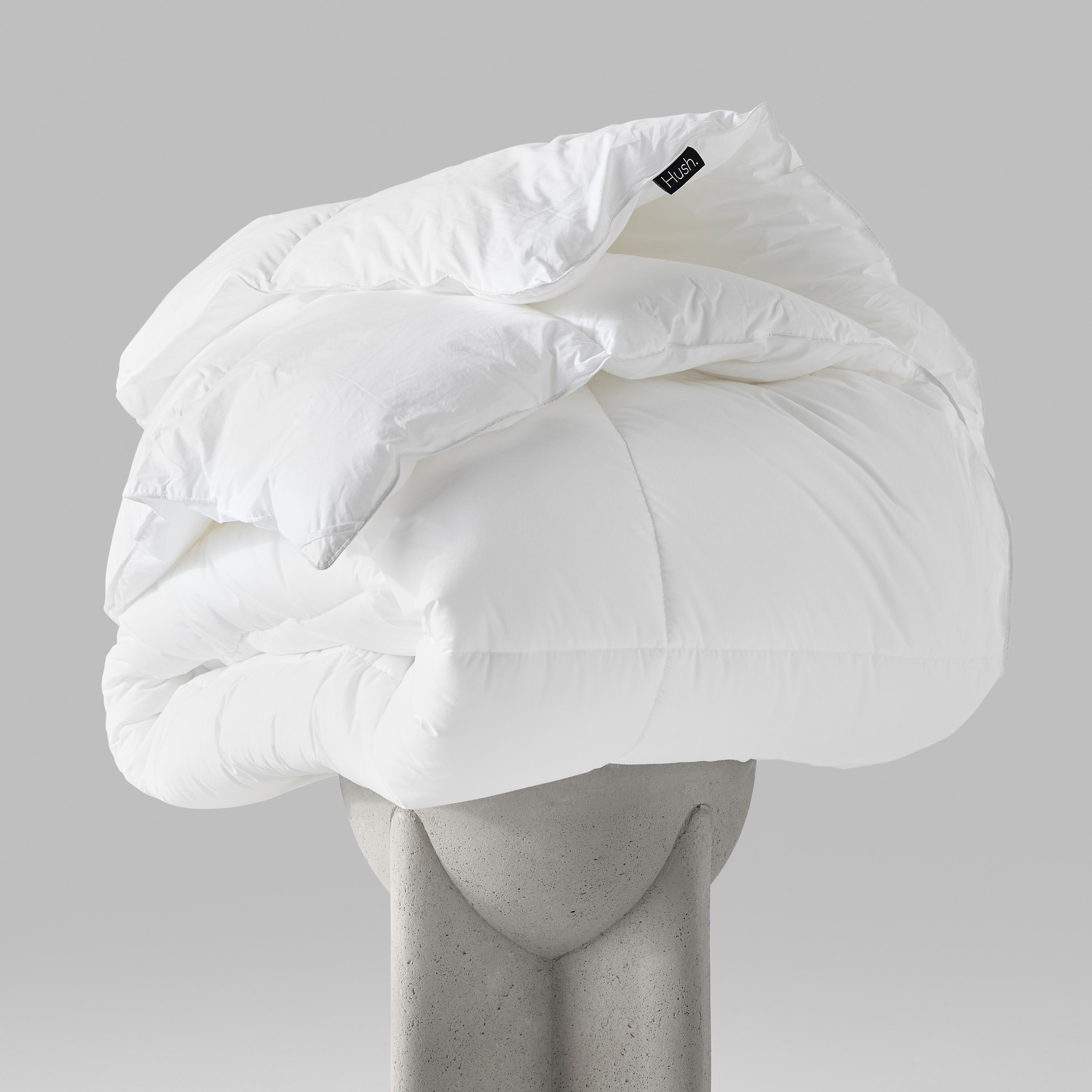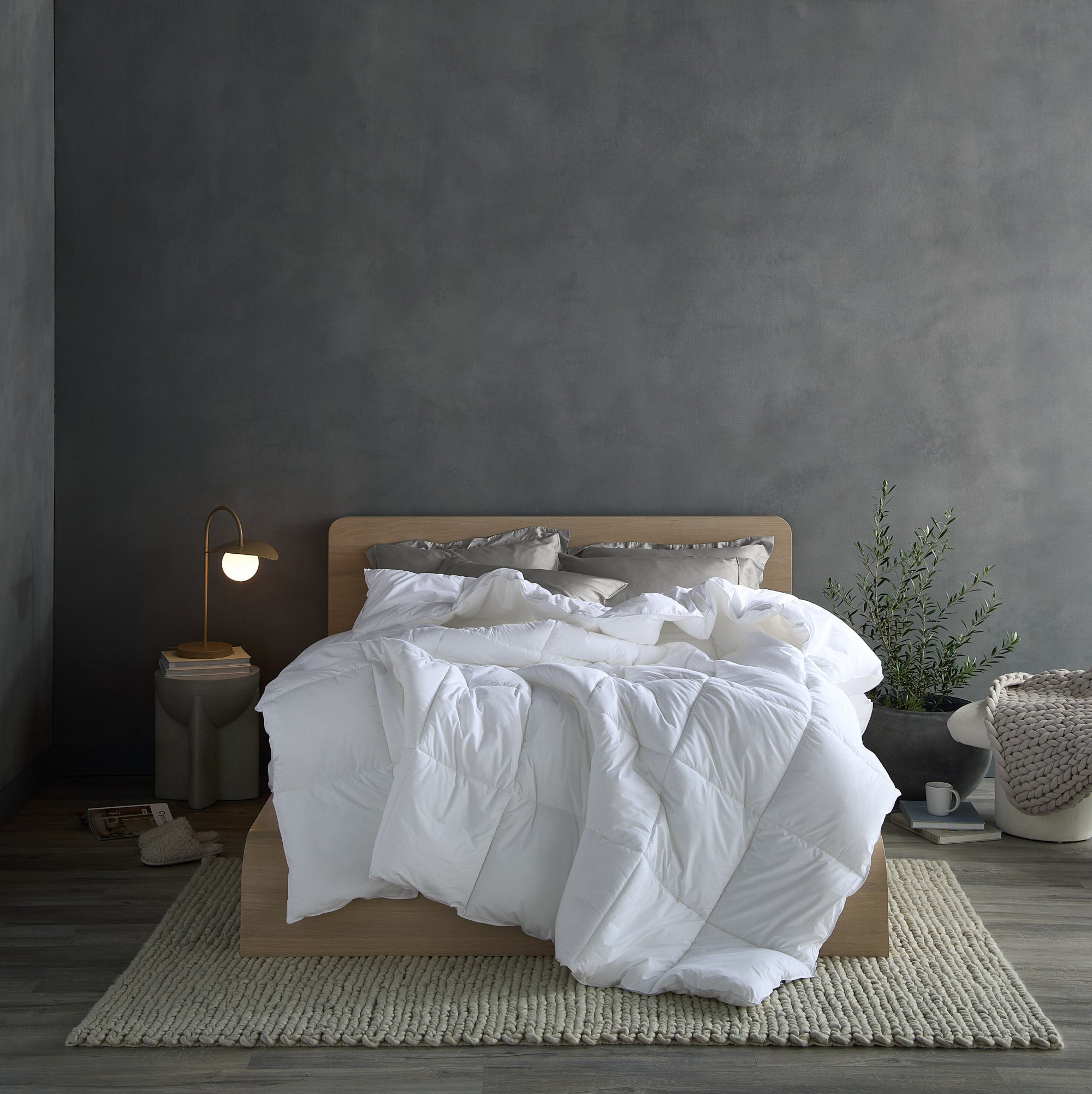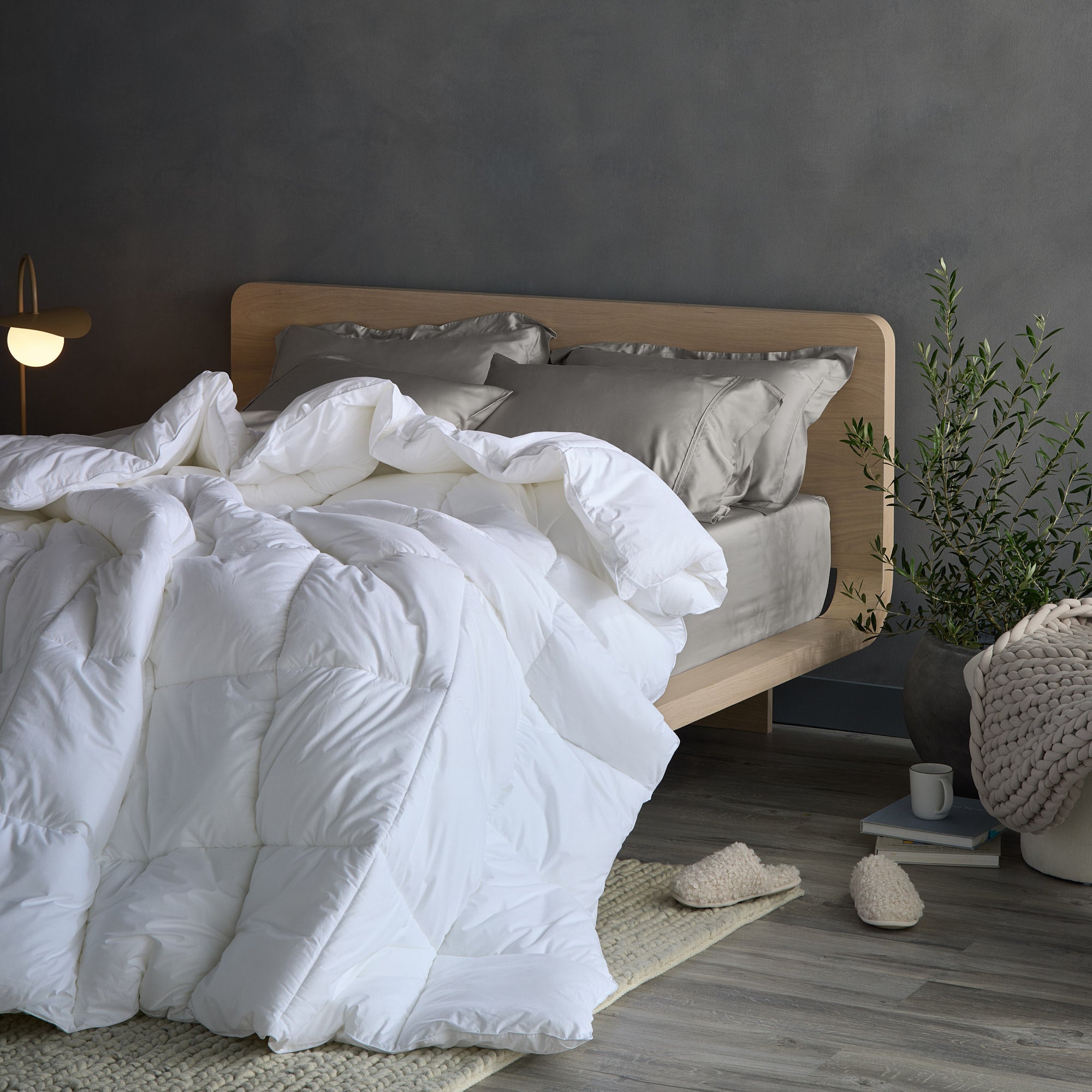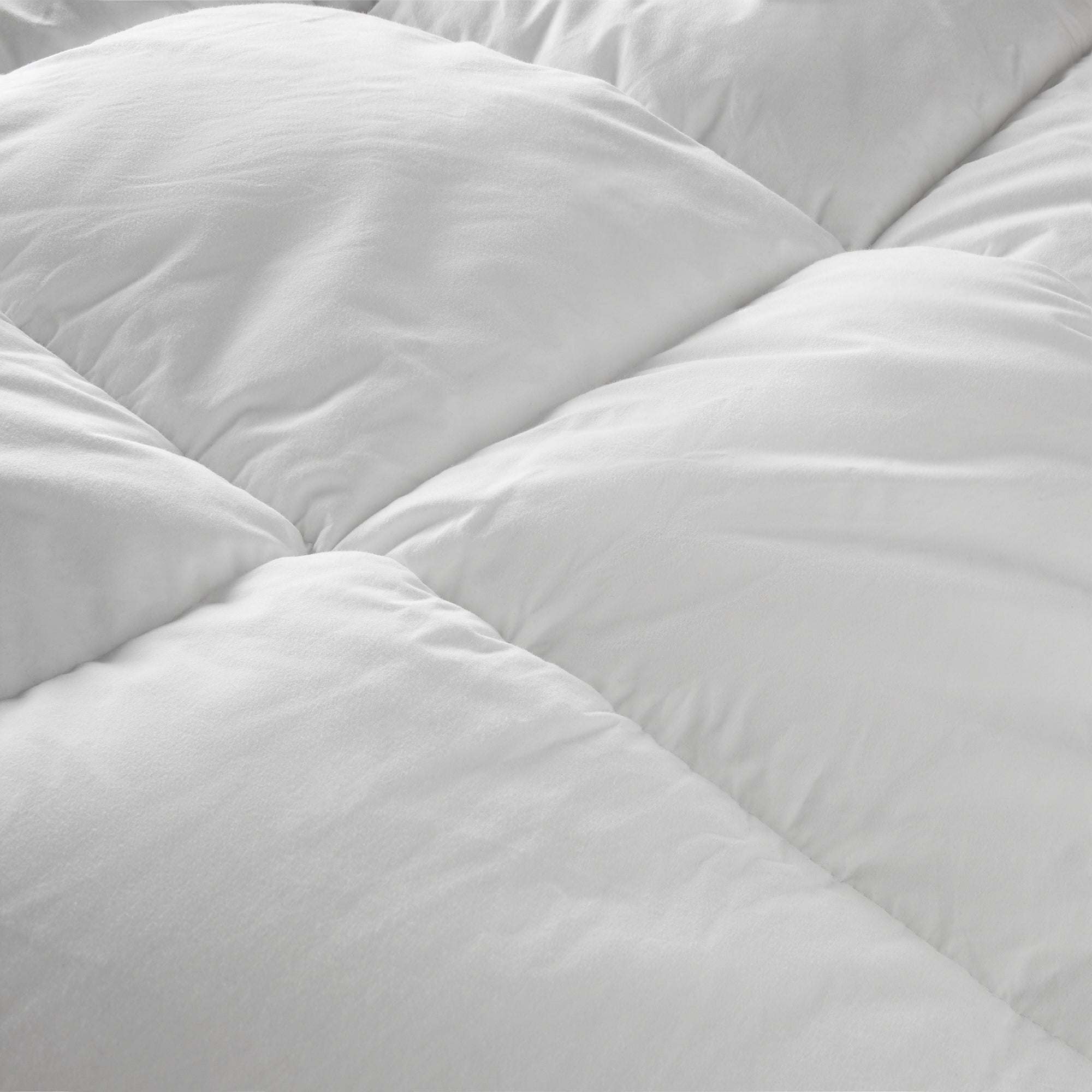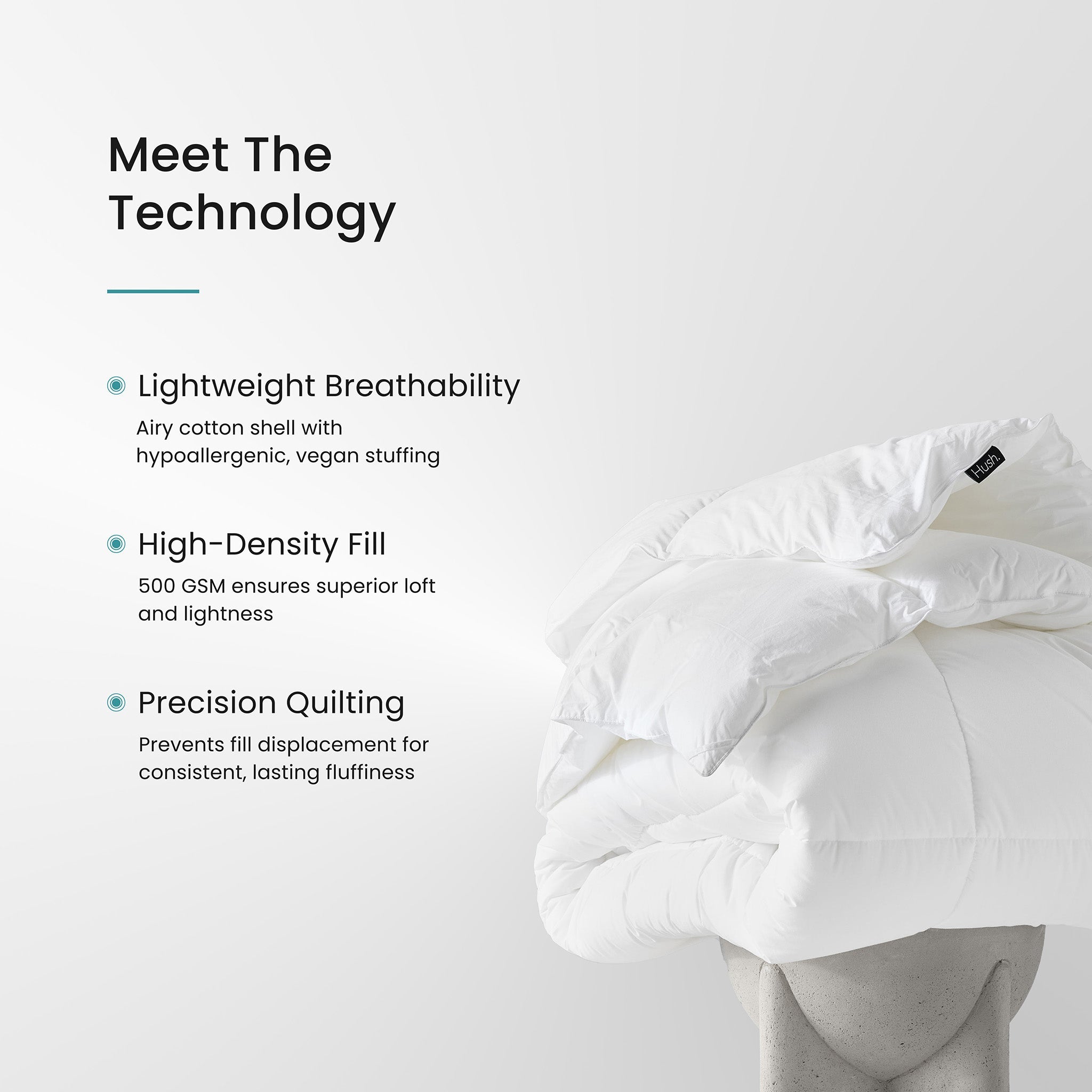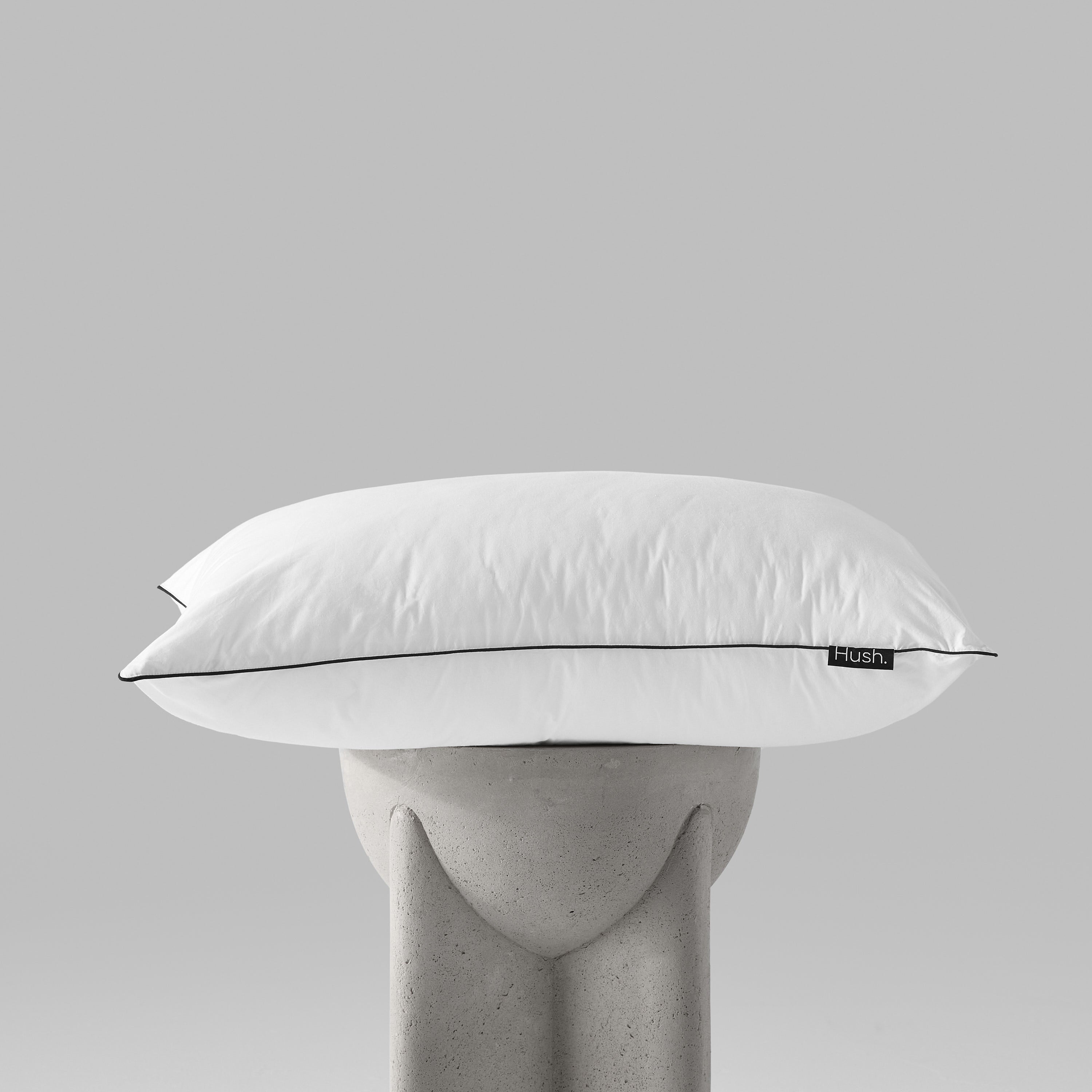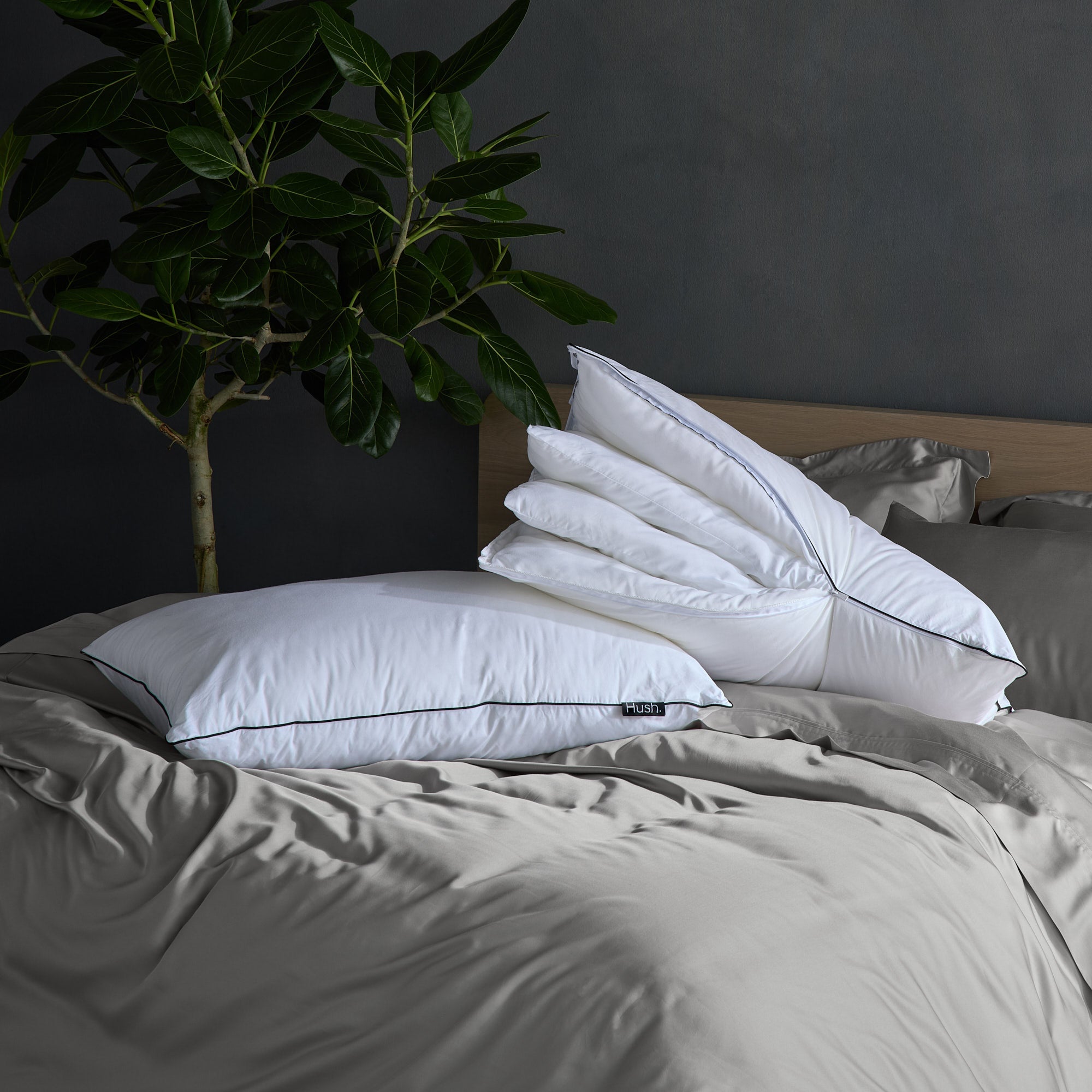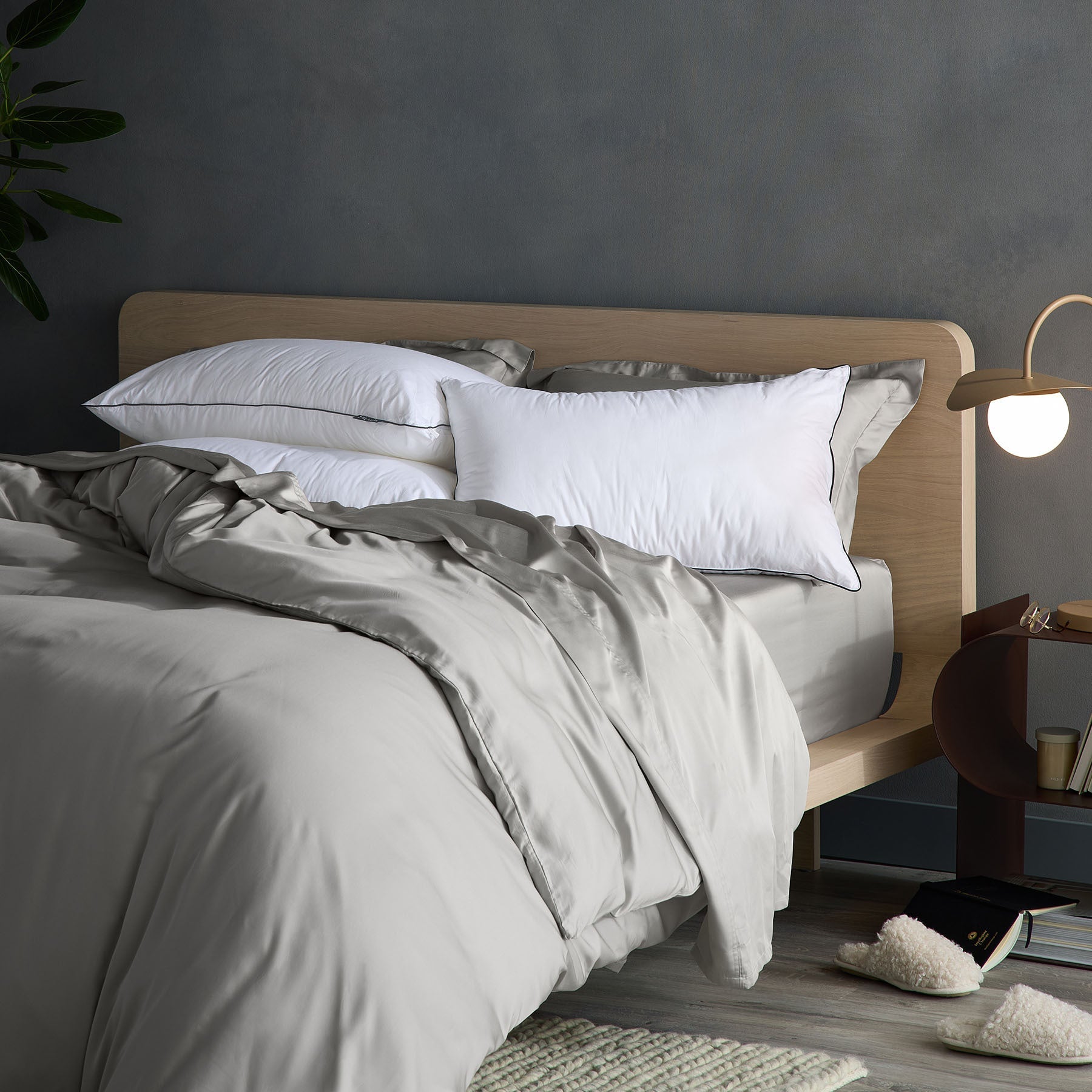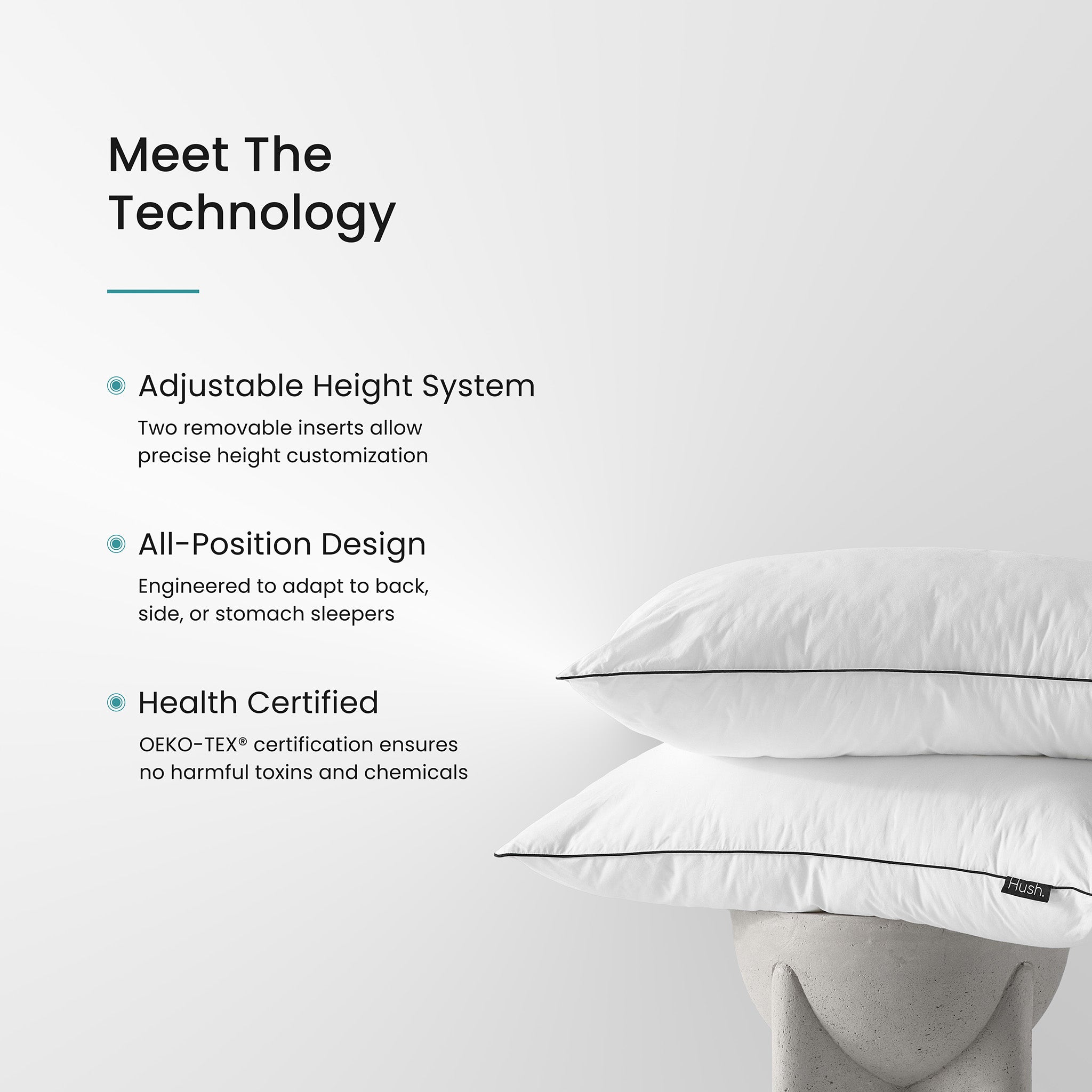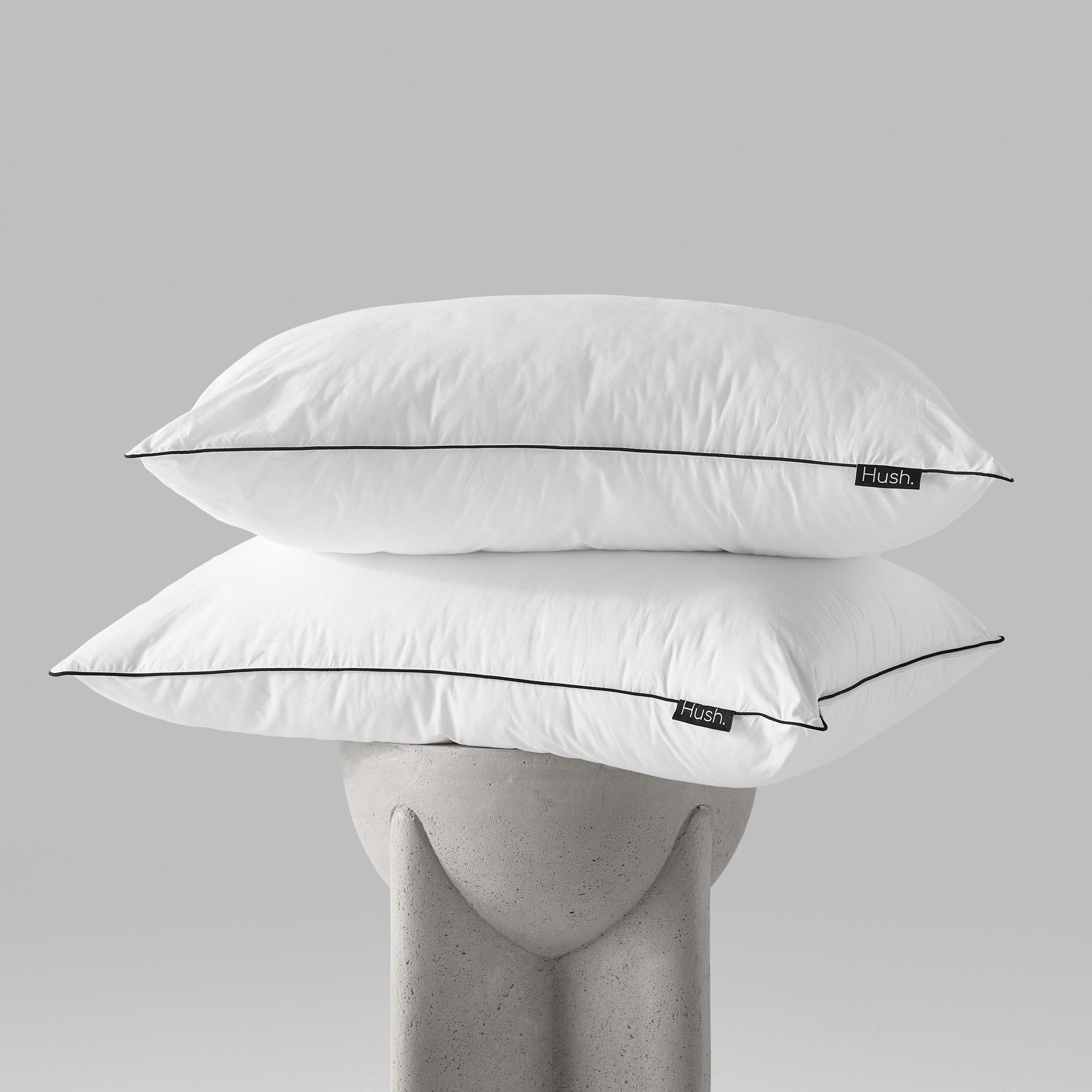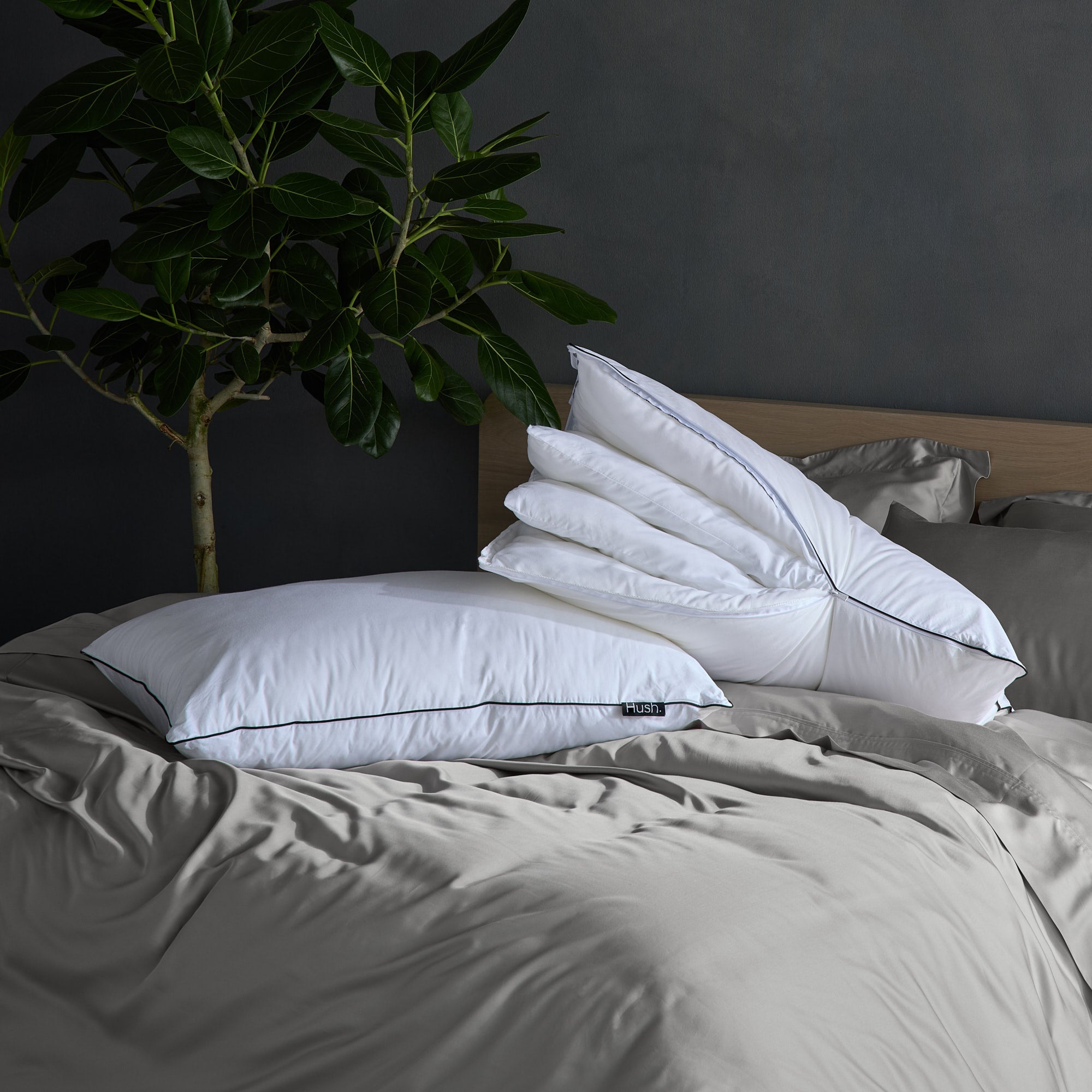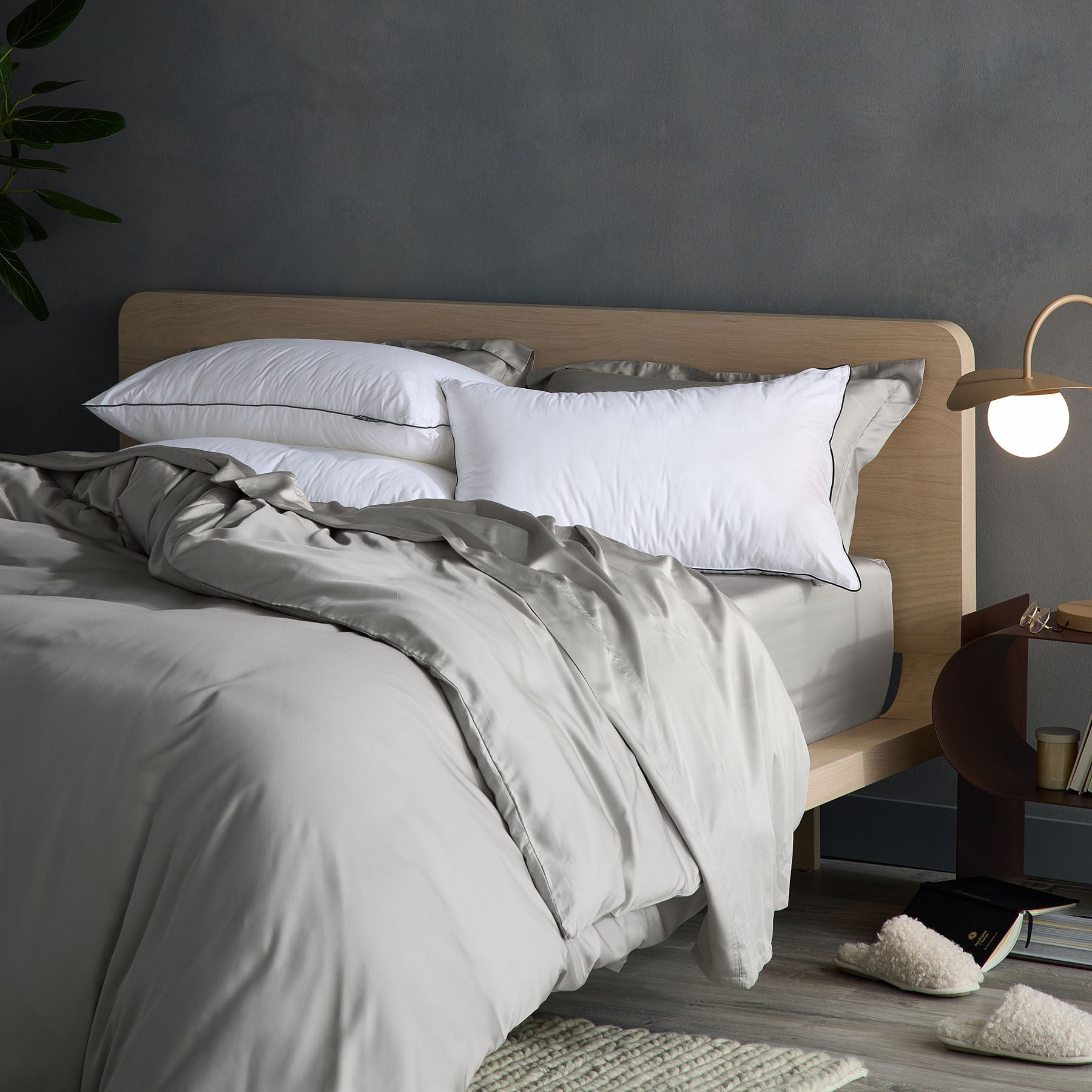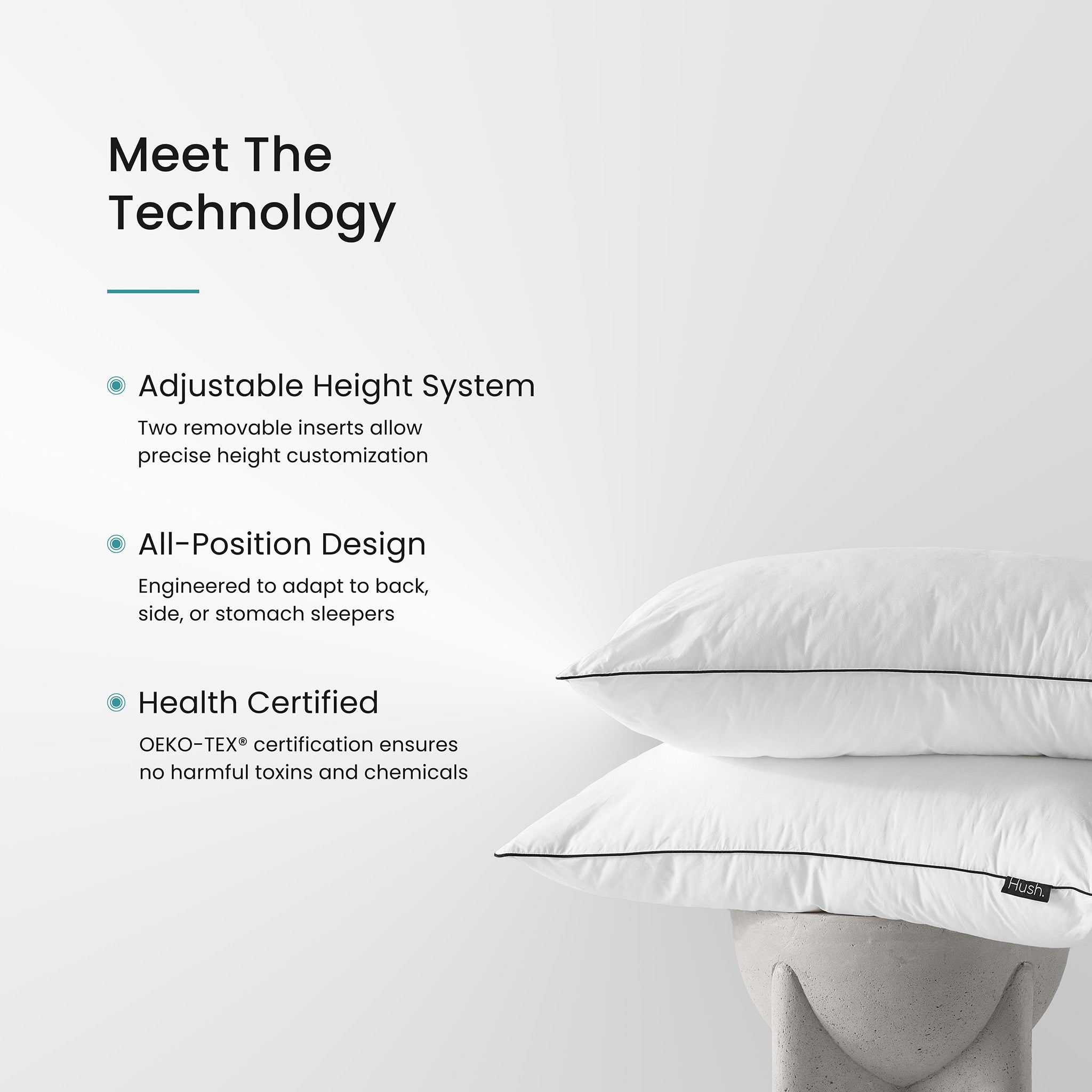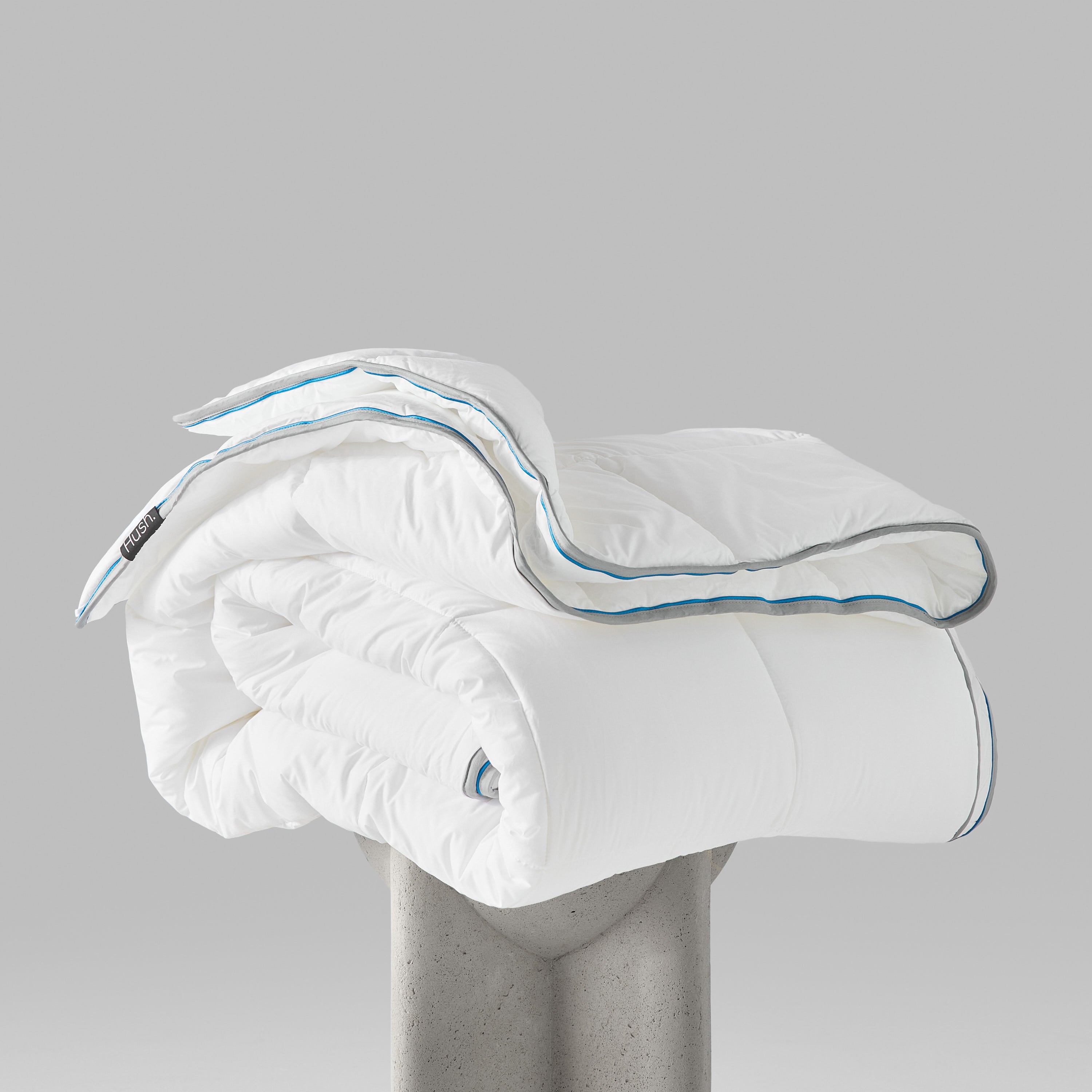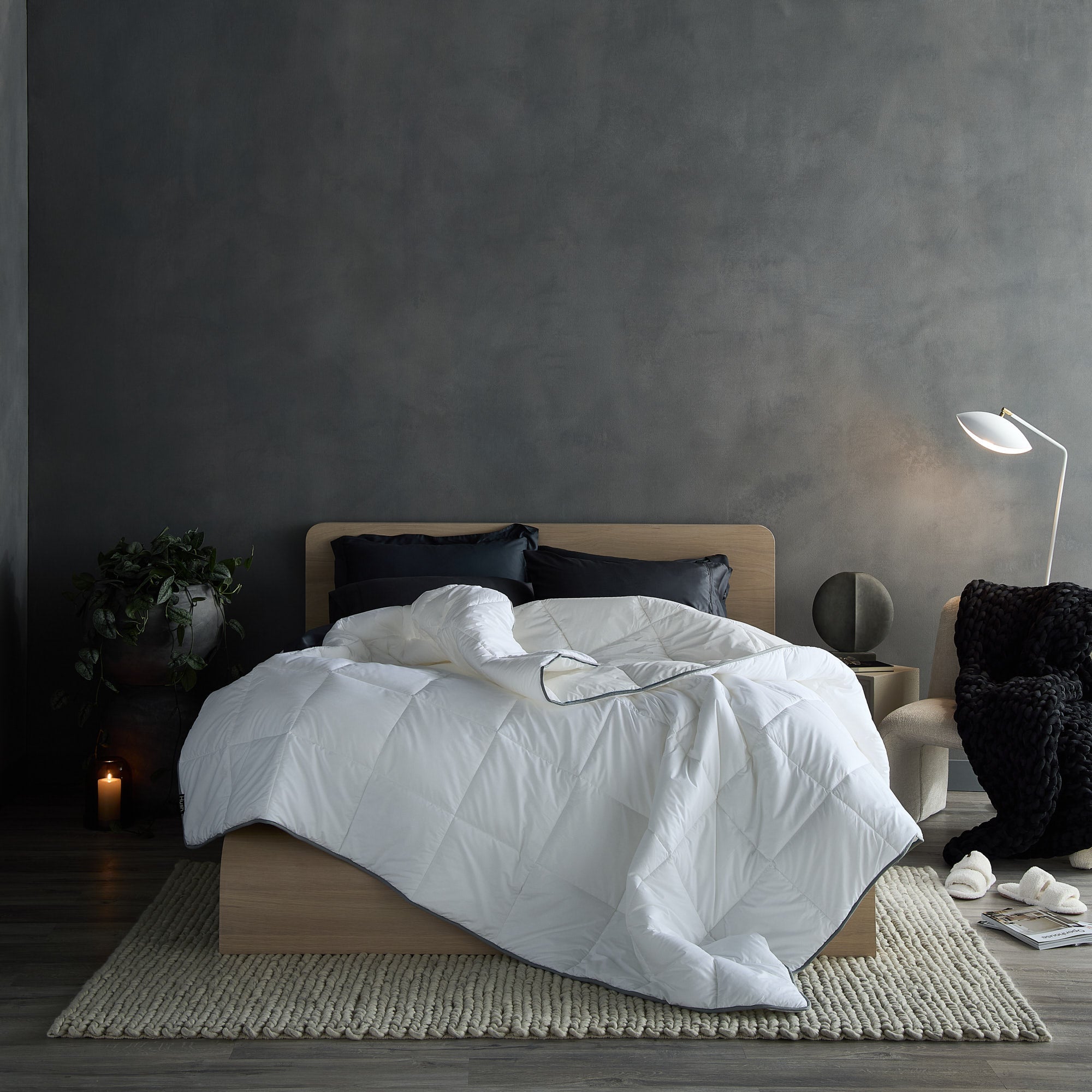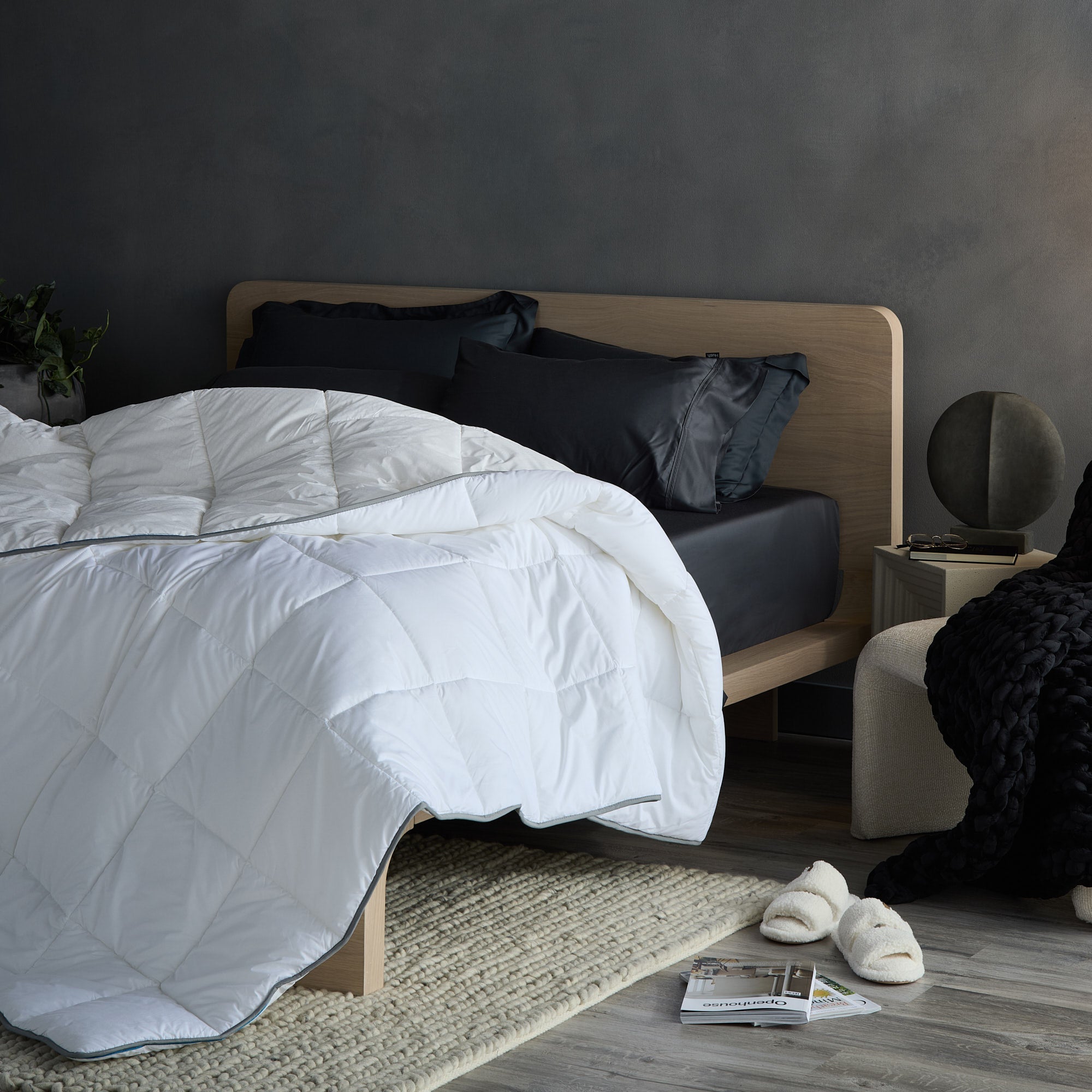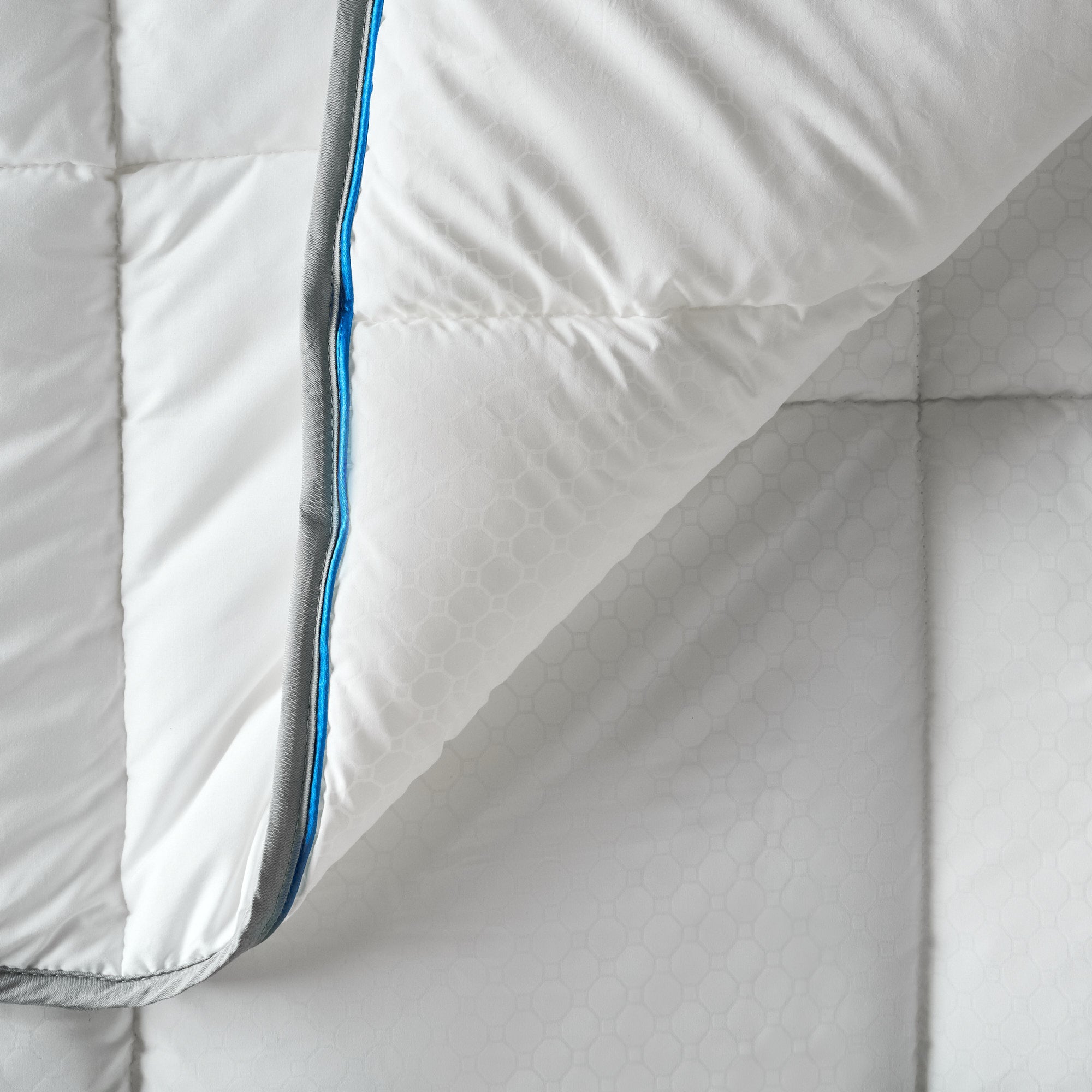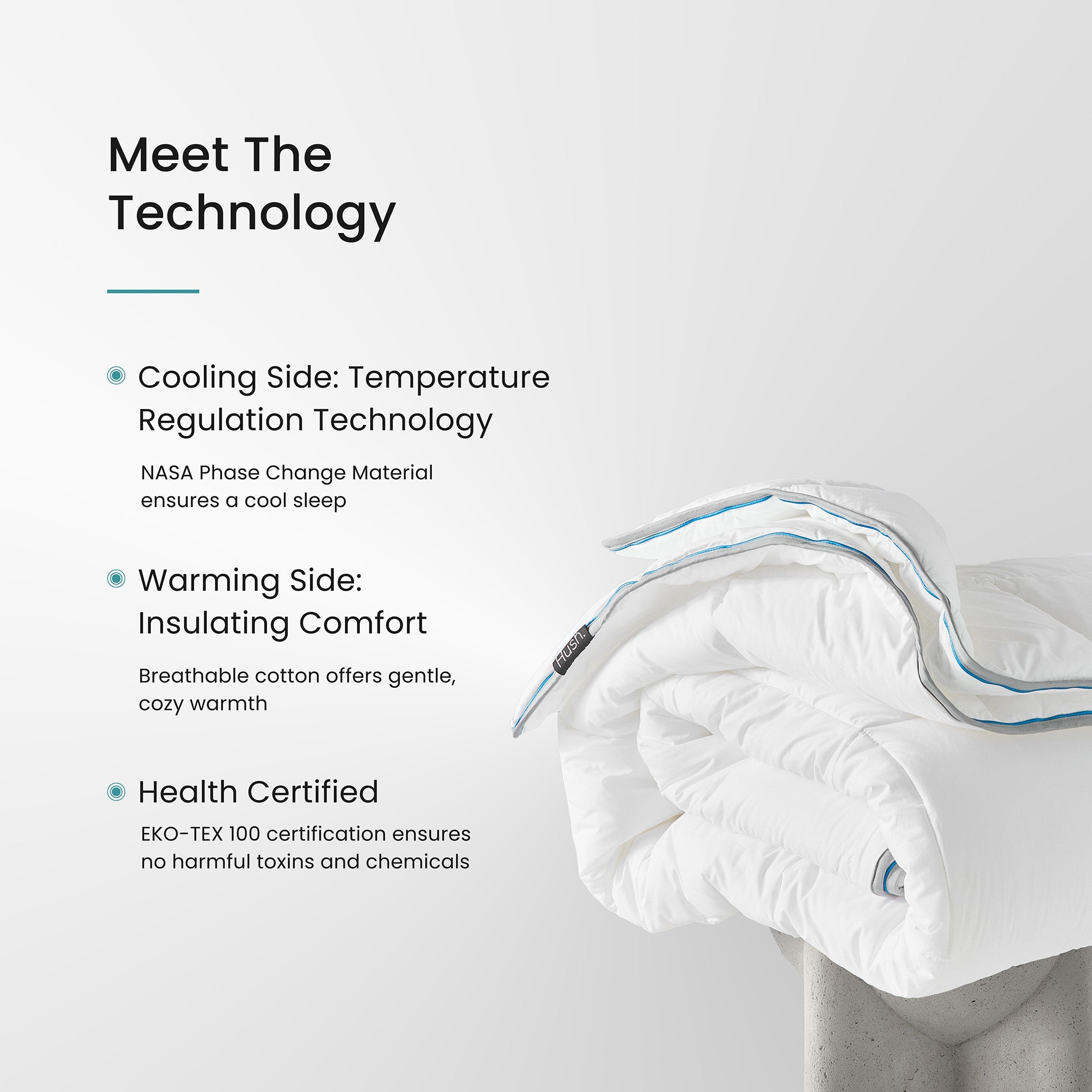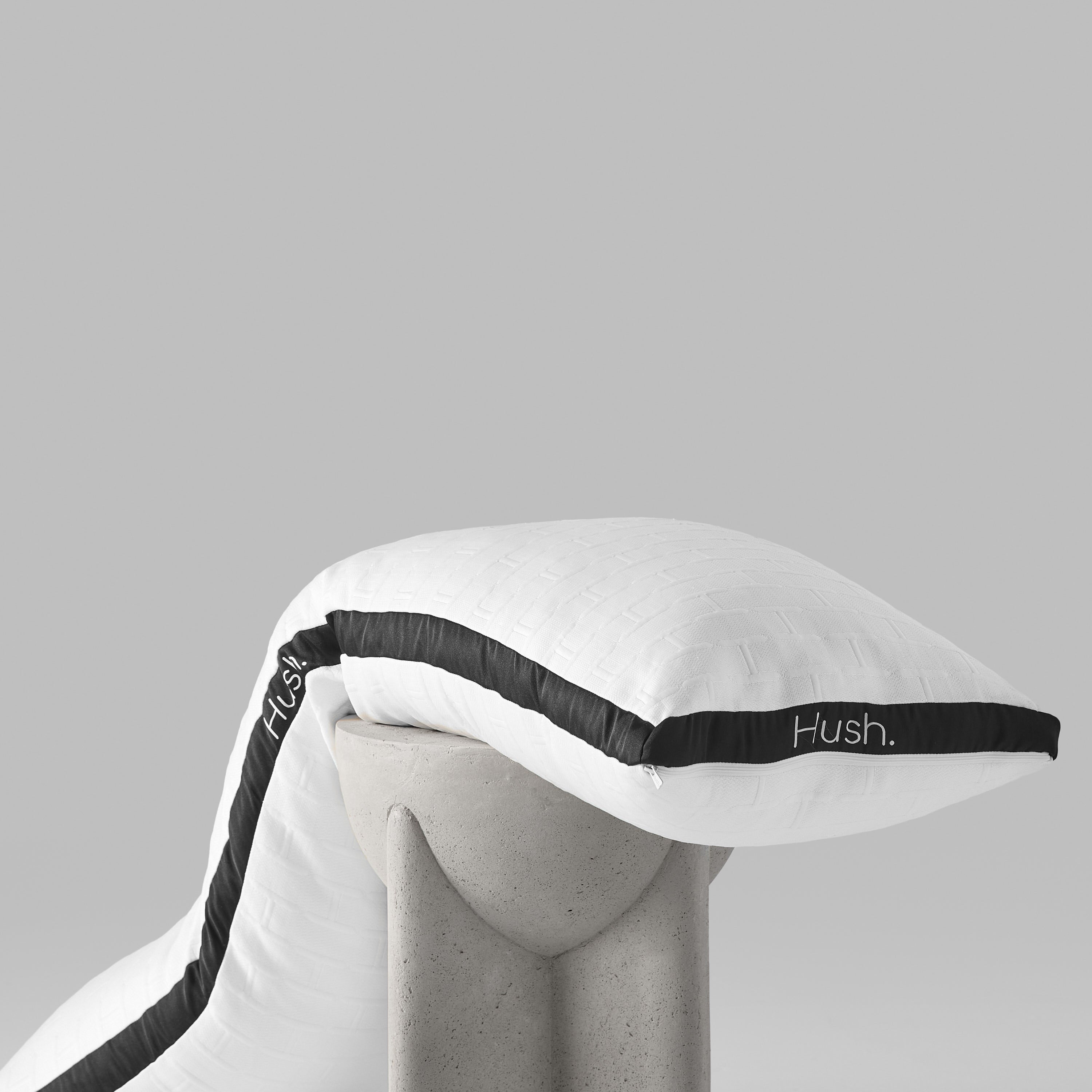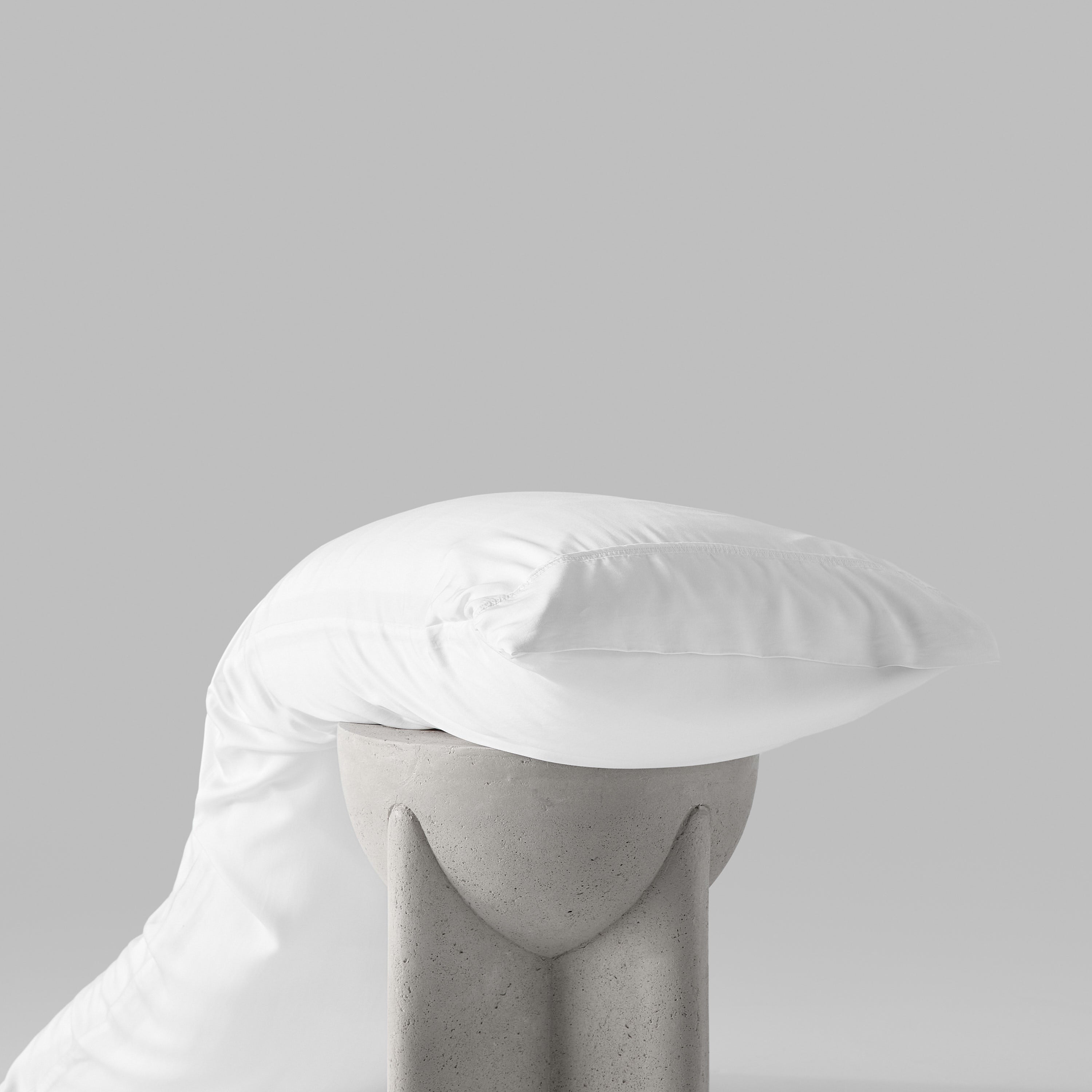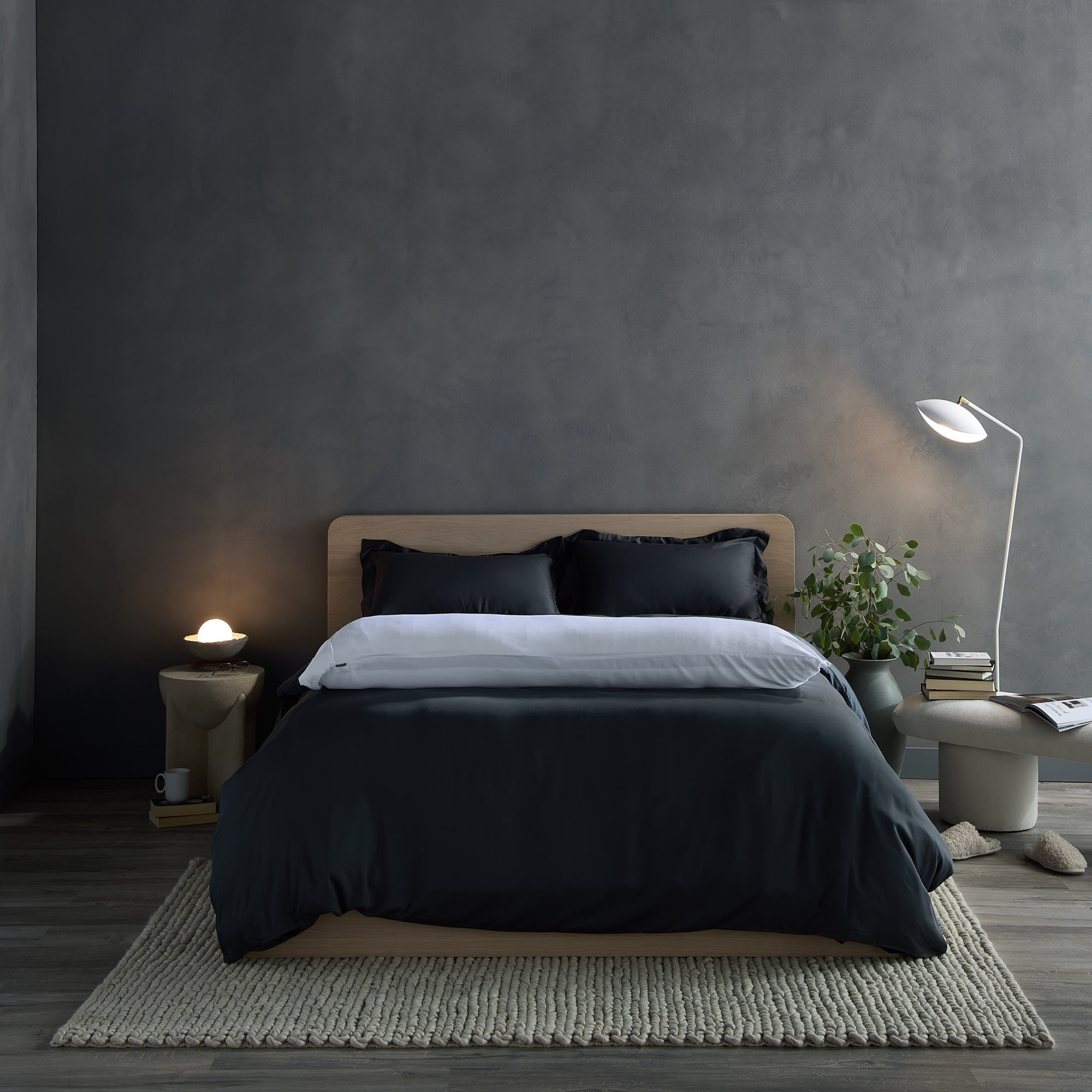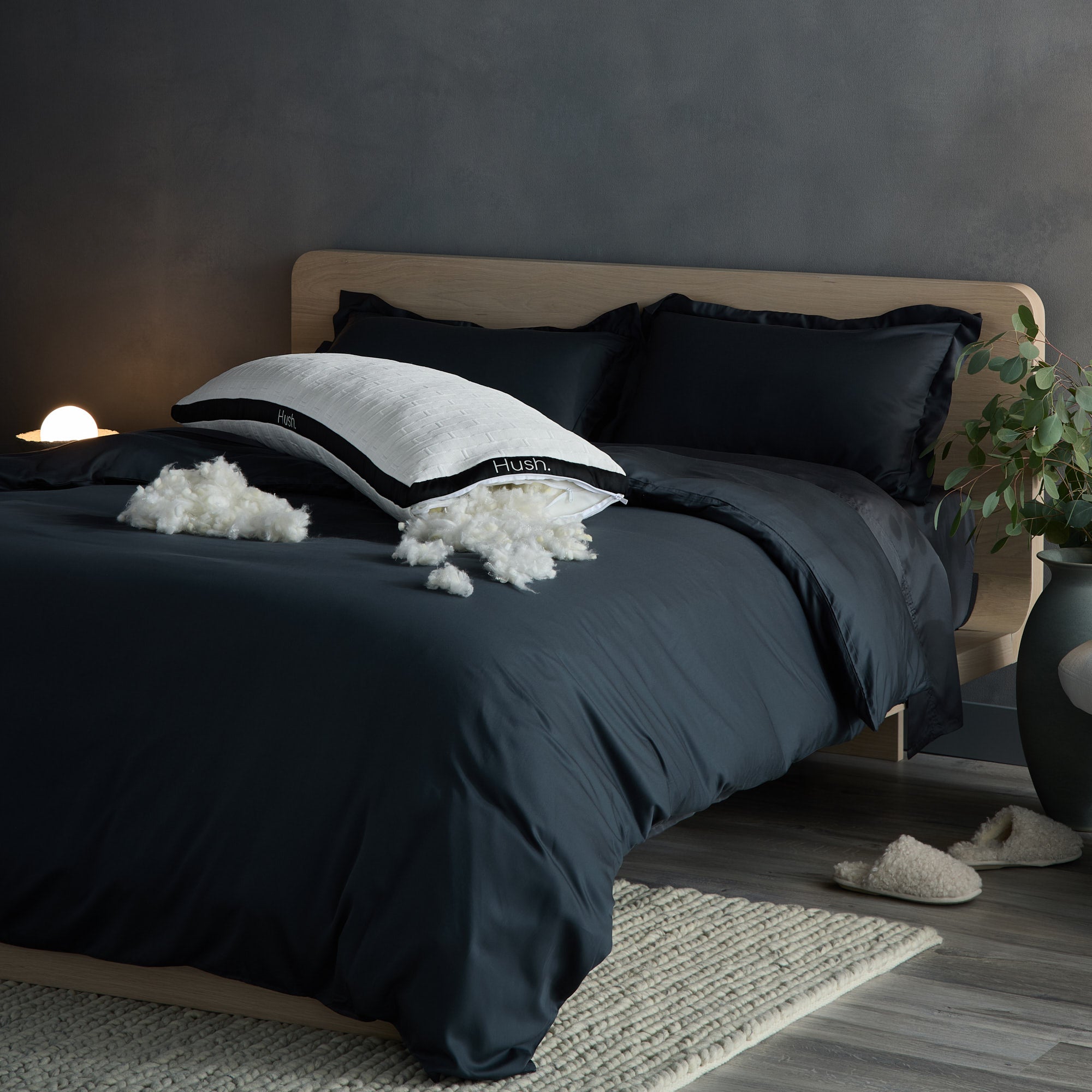Obstructive sleep apnea is one of the most common sleep disorders in the US, but treating it can be difficult. Some common remedies for insomnia may improve it, while others (like certain sleeping pills) might actually make it worse. Some people are turning to alternative treatments like weighted blankets, but what effect do these have on sleep apnea?
We’re here to tell you how weighted blankets might improve sleep apnea and when you can try them. Read on to learn about the best weighted blanket for sleep apnea, 5 benefits of weighted blankets for sleep apnea, and when to use caution.
At a glance:
Best Weighted Blanket for Sleep Apnea

If we didn’t think our Hush weighted blankets were the best on the market, we wouldn’t have bothered making them. We’ve worked hard to ensure our weighted blankets are second to none. They can help with a wide variety of sleep disorders, including sleep apnea. In this section, we’ll show you how we make the best weighted blankets for sleep apnea.
Cooling Duvet Cover
Overheating during sleep is common, especially among those with sleep apnea (according to a study from the British Medical Journal). While many weighted blankets exacerbate this problem, our Hush Iced 2.0 weighted blanket is designed to keep you cool. It’s made with organic viscose bamboo, which is not only cool to the touch but naturally antimicrobial and soft.
And it actually works. As you’ll see from reading reviews, many customers are thrilled to discover that this blanket keeps them from overheating. As one reviewer says, “Not only does it give us the pressure we need to help us relax, the Iced 2.0 keeps us cool all night.”
Of course, not everyone is a hot sleeper, which is why we offer additional duvet covers. Our Hush classic has a super soft, “minky” duvet cover, ideal for those who have a tendency to sleep cold, or who live in colder climates. And if you can’t decide, you can always get a blanket that comes with both duvet covers!
High Quality Construction and Materials
Another concern people often have about weighted blankets is that the weighted material inside the blanket might not stay evenly distributed. This may be an even bigger concern for those with sleep apnea, since you definitely don’t want the weighted material collecting anywhere that might obstruct your breathing.
Thankfully, our Hush weighted blankets offer the most even weight distribution you’ll find in any weighted blanket. This is because we fill the blanket with non-toxic glass sand, which is even smaller than glass beads (used by most other companies). Each blanket has hundreds of discrete pockets with even amounts of glass sand, so it won’t ever move between pockets.
What’s more, we ensure the sand stays in place using a proprietary sewing machine we built just for this purpose. While other companies use imprecise and toxic glue guns to get the weighted materials inside the blanket, we carefully sew the sand into each pocket. Nothing toxic ever comes into contact with the blanket, and the sand stays in place for years to come.
5 Benefits of Weighted Blankets for Sleep Apnea

While no scientific studies have directly assessed the effects of weighted blankets on those with sleep apnea (as of this writing), we can use the research that does exist to infer the benefits of weighted blankets that are relevant for those with sleep apnea.
Specifically, weighted blankets can reduce anxiety, increase oxytocin, lower blood pressure, reduce nighttime movements, and help you maintain your sleeping position, all of which are especially beneficial in those with sleep apnea.
Can Reduce Anxiety
One of the most well-established benefits of weighted blankets is their ability to help reduce anxiety. A 2020 systematic review from the American Journal of Occupational Therapy that assessed eight studies on weighted blankets found significant evidence that weighted blankets could help reduce anxiety.
And while this is a promising finding for all of us, it’s especially noteworthy for those with sleep apnea. A cross-sectional study from the Journal of Research in Medical Sciences that tested 178 individuals with sleep apnea found more than half had some degree of anxiety, significantly more than the prevalence of anxiety in the general population.
With this in mind, weighted blankets may be a good option for those with sleep apnea who are also affected by anxiety, or anyone who tends to be affected by anxiety at night. By reducing anxiety, weighted blankets help improve your sleep quality.
Can Increase Oxytocin Production
Another major benefit of weighted blankets can also potentially benefit those with sleep apnea by increasing oxytocin production. In addition to being one of the “feel good” hormones, oxytocin has been found to reduce the symptoms of sleep apnea, according to a research article from the journal Lung, Cellular, and Molecular Physiology.
And as a randomized, controlled trial from the Journal of Clinical Sleep Medicine explains, weighted blankets are able to trigger the production of oxytocin through deep pressure stimulation. Think of a soothing massage, or a tight hug: With just the right amount of pressure, our muscles relax, and our body releases pleasant, healing hormones like oxytocin.
Can Lower Blood Pressure

A common problem among those with sleep apnea is high blood pressure. In fact, an article from the American Heart Association claims hypertension (high blood pressure) at night is considered a direct symptom of sleep apnea.
Thankfully, weighted blankets can potentially lower blood pressure. A review article from Frontiers in Psychology explains that oxytocin can lower blood pressure (as well as induce anti-inflammatory and other protective effects in the cardiovascular system). And as we just saw above, weighted blankets can help your body release oxytocin.
This is confirmed by a study from Occupational Therapy in Mental Health that tested the effects of weighted blankets on 32 adults: Weighted blankets were found to have a modest impact on blood pressure.
Can Help Reduce Movements During Sleep
Another common problem among those with sleep apnea is restless legs syndrome, or the uncontrollable urge to move your legs around while lying in bed. According to a study from the European Respiratory Journal that tested 71 patients with sleep apnea, some degree of restless legs syndrome was present in 67% of the patients — a clear majority.
The good news is that weighted blankets can reduce involuntary movements during sleep. A study from the Journal of Sleep Medicine and Disorders found weighted blankets not only increased the amount of time participants were able to sleep but also reduced their movements during sleep.
This suggests weighted blankets may be beneficial not just for those with sleep apnea and/or restless legs syndrome, but anyone who has a tendency to make involuntary movements throughout the night. Weighted blankets can also help you fall asleep faster, so you’ll spend less time moving around before you fall asleep, too.
Can Help You Sleep on Your Side
For those with sleep apnea, the ideal sleeping position is on your side. Sleeping on your back is known to increase the incidence of snoring, and for those with sleep apnea, it may also increase the incidence of apnea (i.e. the temporary pauses in breathing throughout the night associated with sleep apnea).
A weighted blanket can help you stay on your side by reducing movement throughout the night, as we just saw above. When sleeping on your side, you may find you sometimes wake up on your back. But when you sleep with a weighted blanket, you’re much less likely to roll over in the middle of the night while asleep, since the weighted blanket will keep you in place.
Are Weighted Blankets Safe For Those With Sleep Apnea?

In general, yes — but there are some caveats. It’s important to note that sleep apnea patients shouldn’t make any major changes to their sleep habits without first consulting a doctor or healthcare provider. This is even more important if your sleep apnea is untreated.
So, talk to your doctor if you have sleep apnea and are considering a weighted blanket to help you sleep better. If you’re treating sleep apnea with a CPAP machine or other doctor-prescribed treatment plan, you’ll most likely be fine, but it’s always better to be cautious and ask first when dealing with a chronic health condition. If you do decide to try one, make sure to choose a weighted blanket that’s about 10% of your body weight.
Try Hush Sleep Essentials for a Better Night’s Sleep

As we’ve seen, weighted blankets can help improve sleep apnea symptoms by reducing anxiety, increasing oxytocin, lowering blood pressure, reducing involuntary movements at night, and helping you stay on your side.
We recommend speaking with your doctor before trying a weighted blanket, but as long as your doctor doesn’t have any concerns, we’re confident our Hush weighted blanket is your best option. The cooling cover of the Hush Iced 2.0 keeps you from overheating, and the superior materials and construction keep the weight evenly distributed all night.
